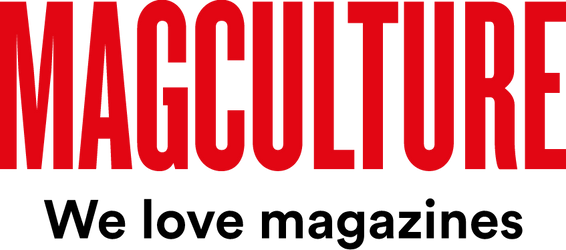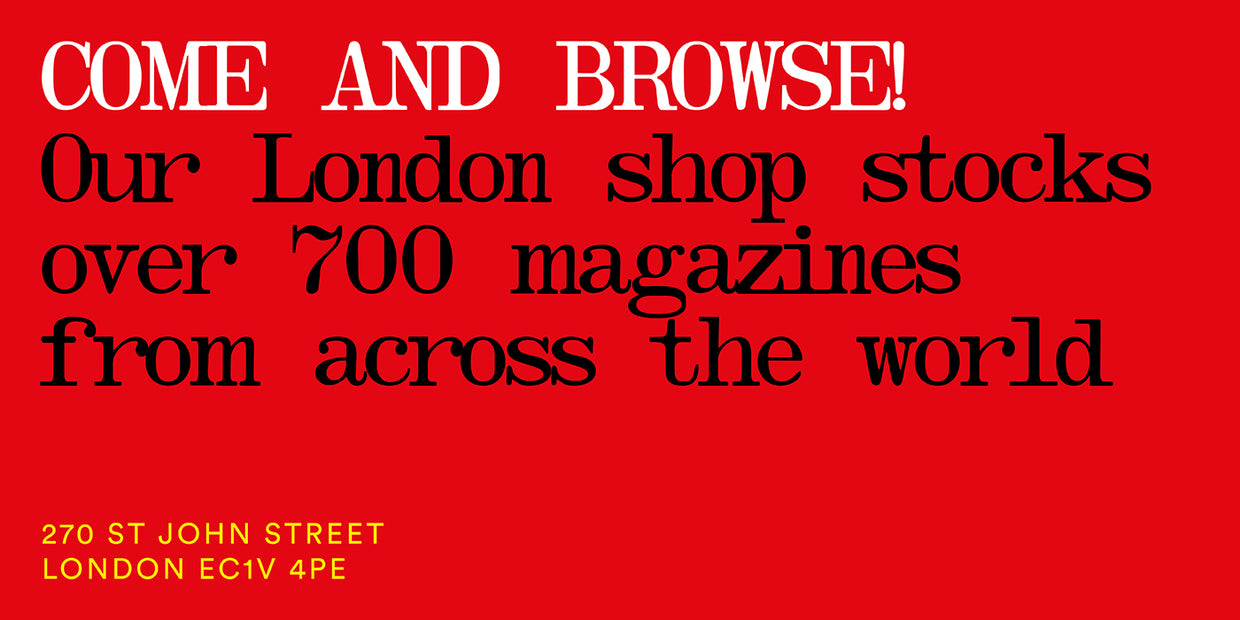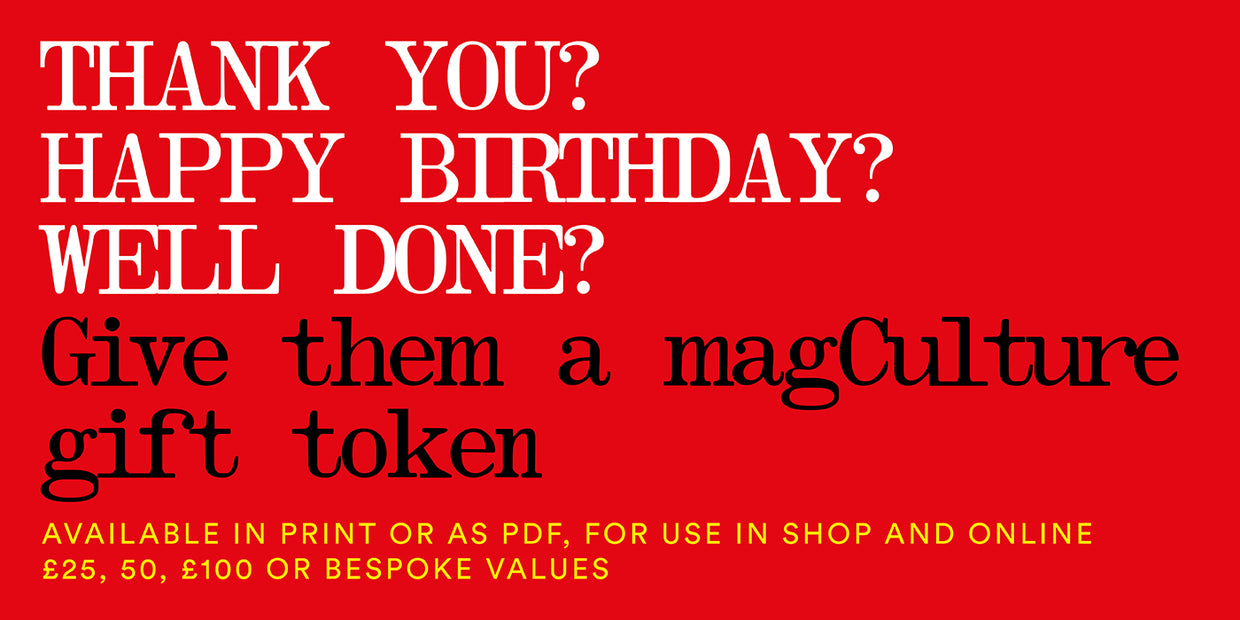
Port handwritten covers
As well as a complete layout overhaul, Port’s recent redesign introduced an intriguing approach to its covers. Instead of a constant logo, the magazine title is handwritten by the issue’s cover star.
Such flexibility is extremely rare. Whether a small indie or major mainstream title, the logo has long been the most sacrosanct part of a publication, the central part of the magazine’s visual identity. Even a complete redesign of every other aspect of a magazine will often see the existing logo retained or subtly updated.
I spoke with the Port’s art director Matt Curtis about the move.

Over its 13 years to date, Port has seen a few iterations of its cover design and logo. Most recently, co-founder Matt Willey devised a modular logo built from four rotatable boxed letters (above, in our shop window, June 2022).
When creative director Matt Curtis redesigned Port last year, he worked through a range of new cover directions. ‘The old modular logo was epic when Matt Willey first designed it, for the magazine’s 10th anniversary. But it had become normal and lost its magic—not through lack of craft, but it felt tired. All the covers ended the same.’
What had started out as bold and different had become repetitive; something we found here at the shop, seeing new issues arrive and being confused by the colours and variations. It also tended to overwhelm the cover photography, always a strength of Port.
Curtis explains more, ‘We did a load of other directions and tests (above), but they all seemed familiar—Port has been through some very good hands. We wanted it to feel more human.’

‘We tried a couple of handwritten versions in the studio, and then just asked people on the shoots to write a few. We felt if we didn’t like it after issue one, we would drop it. But we liked it. We feel there is more to do before it gets too familiar.’

The strength of the approach is that each rendition of the magazine name—can we call this ‘a logo’?—can adapt to the cover image. The result is a series of stunning personalised cover designs, with the details so different that the variation becomes the linking factor. Although the redesign has only been in place for three issues, there has already been 15 handwritten variations. Each issue of the mag has multiple cover stars, each applying their handwriting. (It’s worth noting that the brevity of the magazine’s name helps the idea work.)
Curtis continues, ‘I guess in hindsight it’s a reaction to AI. We wanted the covers to feel more real—you get a lot of personality with handwriting. Franz Rogowski’s logo is unusual, awkward, the letters are both blowout and falling within themselves. In his interview he talked about the paradox of being a performer and also hiding in real life. Taika Waititi is the opposite, the letters are playful and energetic.’

‘Cai Guo-Qiang (above) used a massive brush and it looks like one of his explosions. Teo Yeo grapples with the complexities of his German, American and South Korean identity and never feeling at home. His Port logo is influenced by both Hangul (the Korean alphabet) and a Latin-script, but it’s beautifully neither. Ben Wishaw’s is very skinny and artful. Brian Cox’s is mad and so on… Barry Keoghan wanted to draw his P back to front… (below).’


Were they all really been written by the cover star? ‘All but one have been real. We asked Franz Rogowski (above) to give us some more options. He refused, telling us if we asked for more, it’d be our interpretation and not his. And we thought that was great and have stuck with that. My six year old son wrote one for this current issue, but we’ll never reveal which one it is…’

Which ones do you think worked particularly well? ‘All the ones that are weird, Franz Rogowski’s, Taika Waititi, Ben Whishaw… But I also like the normal ones, that allow these to be odd. Mustafa wrote his on the floor with Chalk (above), and Andrew Garfield on his hand (that was art directed, below).

Has the ever-changing name design caused any problems for the overall identity of Port? ‘My view is that it always says Port. And that’s all you need… but now 15 covers in… a conventional masthead would have been easier!’
Editor-in-chief Dan Crowe
Creative director Matt Curtis, Uncommon Creative Studio


